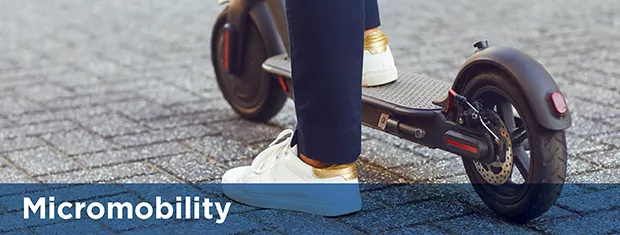Micromobility
Micromobility is a general term used to describe lightweight human- or electric-powered modes of travel, such as e-bikes and e-scooters. These modes of transportation are typically single-person vehicles used for shorter trips.
Types of micromobility devices
The below micromobility devices are permitted on Vaughan roadways, bike lanes, cycle tracks and in-boulevard multi-use pathways:
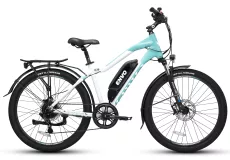
E-bikes
E-bikes are bicycles with electric motors that have working pedals – they can be operated with or without pedaling. They are limited to a maximum assisted speed of 32 kilometres per hour. E-bikes have the same appearance as a conventional bicycle – they have a handlebar for steering, working pedals, two or three wheels and a braking system.
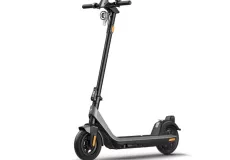
E-scooters
An e-scooter (electric kick-scooter) is a motorized vehicle with two wheels – one at the front and one at the back – brakes, a platform to stand on, a handlebar for steering, a white light in the front and a red light on the rear, a bell or horn, reflective material and a maximum wheel diameter of 17 inches.
The following micromobility devices are NOT PERMITTED in Vaughan:
Segways, e-hoverboards, golf carts, e-unicycles and other two-wheeled or single wheeled electronically-powered micromobility devices with platforms, where the user stands, are not permitted on Vaughan roadways, bike lanes, cycle tracks, in-boulevard multi-use pathways, sidewalks, multi-use recreational trails, parks and playgrounds. This may include devices that have the appearance of miniature motorcycles, often known as mini-bikes or pocket bikes.
| Segway | E-Hoverboard | E-unicycle |
|---|---|---|
Image
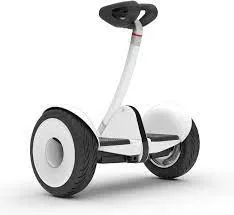
| Image
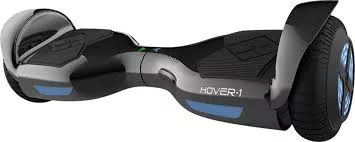
| Image
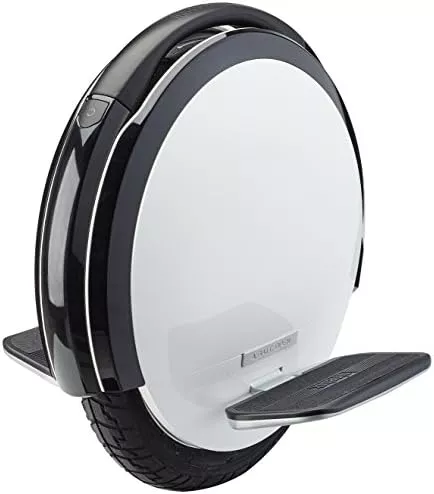
|
Frequently asked questions
-
Answer
To ride an e-bike, you must:
• be at least 16 years old.
• wear an approved motorcycle or bike helmet.
• follow regulations like other cyclists.
• maintain your e-bike in good working order.To ride an e-scooter, you must:
• be at least 16 years old.
• stand at all times while riding.
• wear a bicycle helmet. -
Answer
- E-bikes are permitted anywhere conventional bicycles are allowed, including bike lanes, cycle tracks, in-boulevard multi-use pathways and on most roadways. They are not permitted on sidewalks, trails, park areas or where e-bikes are prohibited. To operate an e-bike, the rider must meet all Ontario’s e-bike requirements.
- E-scooters are permitted on bike lanes, cycle tracks, in-boulevard multi-use pathways and on roadways with posted speed at or less than 50 kilometres per hour. They are not permitted on sidewalks, trails, park areas or in areas where e-scooters are prohibited. To operate an e-scooter, the rider must meet all Ontario’s e-scooter requirements.
Wheelchairs and medical scooters are designed for people who have limited mobility because of a medical condition or injury. They are considered as pedestrians under the Highway Traffic Act. Under the City’s Traffic By-law 284-94, a pedestrian includes a person in a wheelchair and child in a baby carriage, therefore motorized wheelchairs can travel where pedestrians are allowed, such as sidewalks and multi-use pathways.
-
Answer
You must practice safe riding etiquette when on an e-bike or e-scooter. This includes:
- wearing an approved bicycle or motorcycle helmet.
- keeping your device in good working order.
- following the same rules of the road as other cyclists.
- obeying the rules of the road.
Any modification to the e-scooter makes it illegal to operate in the city and any modification to an e-bike, such as removing the pedals or adapting the power source, classifies the e-bike as a motorcycle, which will require a motorcycle licence, insurance and registration. View cycling safety tips at vaughan.ca/cycling. You can also visit the Ontario Government’s safe cycling webpage to learn more.
-
Answer
The maximum assisted speed for e-bikes is 32 kilometres per hour, and maximum operating speed of 24 kilometres per hour for e-scooters.
-
Answer
The below outlines where each type of micromobility device is and is not allowed in Vaughan.
Image
-
Answer
As power-assisted micromobility use continues to grow in popularity, the City is currently working on developing an education and outreach program to provide information, encourage feedback and educate the public on safe operations of these devices.
Staff have reached out to elementary and high-schools in Vaughan to engage students about micromobility and the proper etiquette to ensure safety for both riders and other road users. Staff are also looking to provide a connected cycling network, identify infrastructure improvements and proper signage to make it clear where these devices can operate safely.
-
Answer
Please report unsafe usage to Service Vaughan at 905-832-2281 or service@vaughan.ca and provide the date, location and nature of the incident. By-law officers frequently patrol public spaces – like parks – and will respond as required.
Concerns can also be reported to York Regional Police through the non-emergency phone line at 1-866-876-5423 or by completing the online form at yrp.ca.
-
Answer
You can subscribe online to join the micromobility mailing list and stay informed with updates and opportunities for feedback.
Where to ride your e-bike or e-scooter
-
Answer
Bike lanes are a portion of a roadway designated by pavement markings and signage for use by people riding bikes or e-bikes. Bike lanes are located on both sides of the roadway and users travel in the same direction as those driving. These lanes are separated from motor vehicle lanes by a white painted line.
Image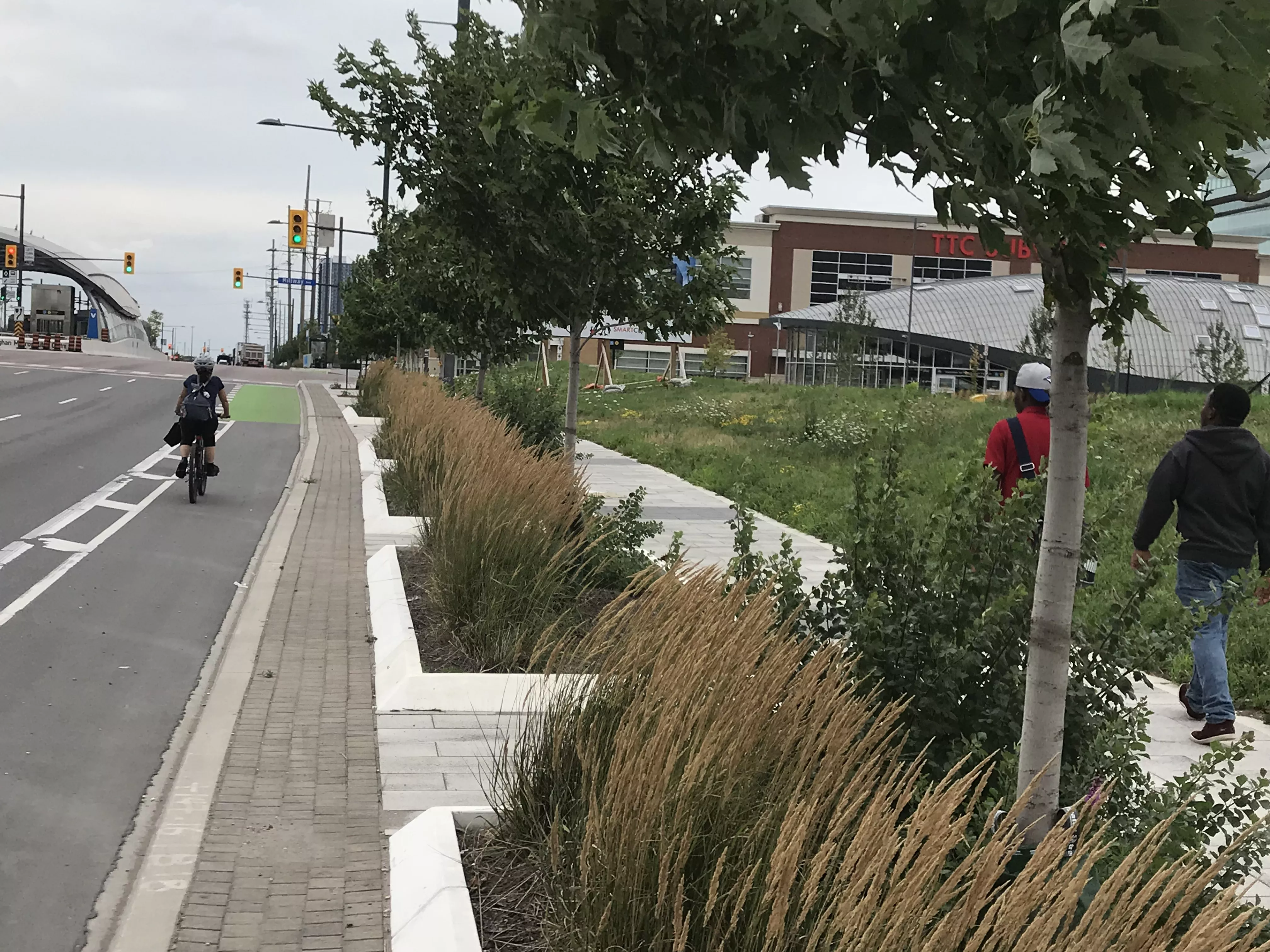
-
Answer
Cycle tracks are different than bike lanes as they are separated from vehicular traffic by a curb and buffer. Cycle tracks typically run parallel to a sidewalk and are designated exclusively for people riding bikes or e-bikes.
Image
-
Answer
In-boulevard multi-use pathways are lanes designated for travel by pedestrians, bicycles, e-bikes or e-scooters. They are separated from the roadway by a curb or buffer.
Image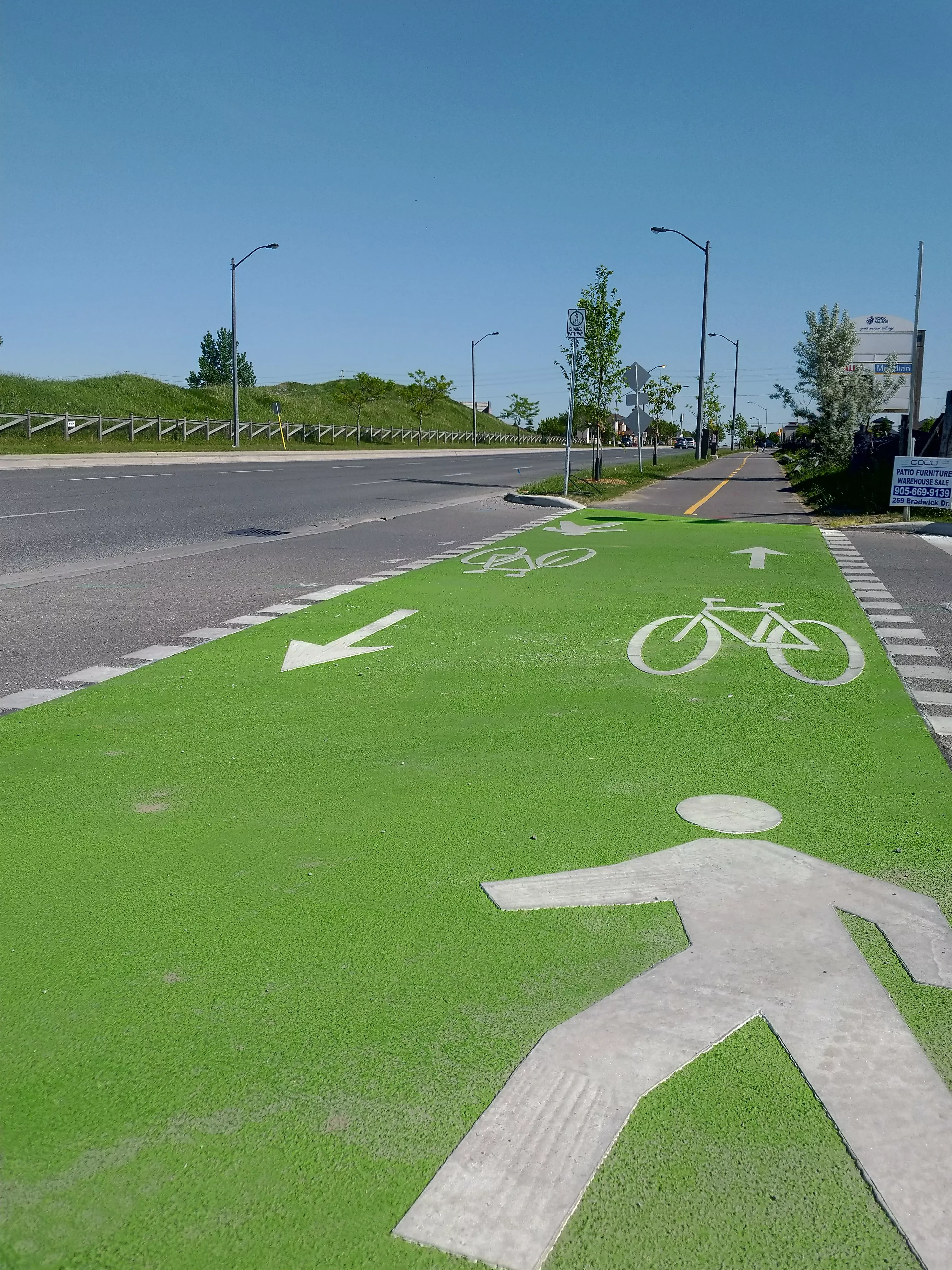
-
Answer
Roadway means that part of the highway that is improved, designed or ordinarily used for vehicular traffic, but does not include the shoulder. E-scooters are only allowed on roadways with posted speed of 50 kilometers per hour or less and where there is no parallel cycling facilities available.
Image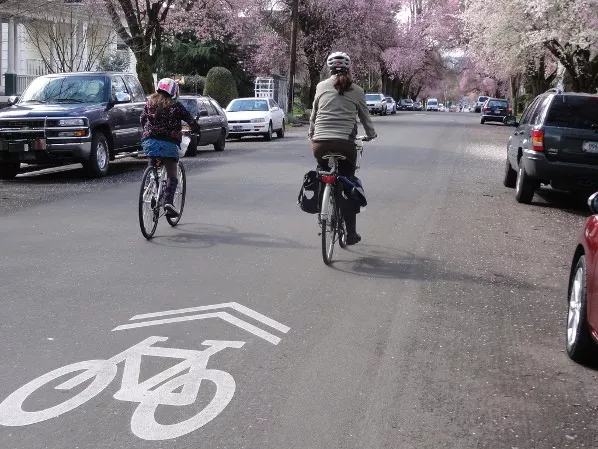
-
Answer
Recreational trails are shared spaces for walking and riding bikes found within parks and open spaces. Power/ motorized micromobility devices are not permitted on these recreational trails.
Image
Contact
Infrastructure Planning and Corporate Asset Management
Email: IPCAM@vaughan.ca
Additional Resources
- Government of Ontario Bicycle Safety
- Government of Ontario e-bike FAQ
- Government of Ontario e-scooter
- Government of Ontario Ministry of Transportation
- Parking By-law 064-2019, Amendment By-law 158-2023 (PDF)
- Parks By-law 134-95, Amendment By-law 159-2023 (PDF)
- Traffic By-law 284-94, Amendment By-law 160-2023 (PDF)
- York Regional Police
- York Region micromobility

